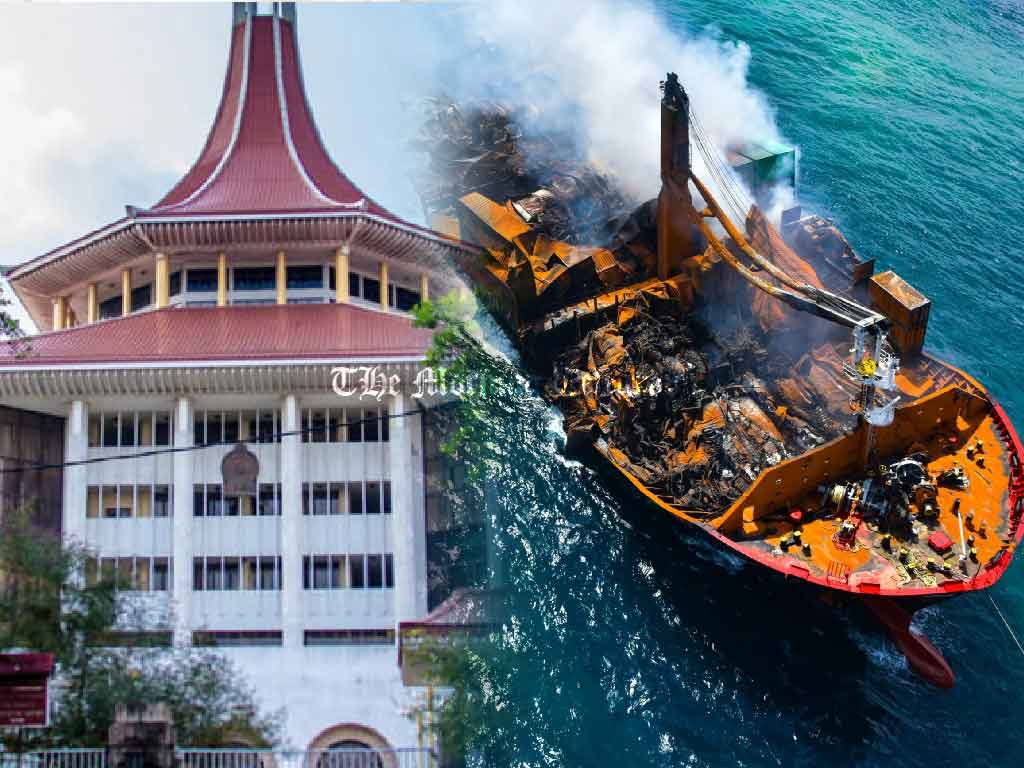
In a decisive legal ruling, the Supreme Court of Sri Lanka dismissed a request by the Attorney General to convene a full bench to hear a petition filed by the captain of the ill-fated MV Express Pearl and the directors of its local representative company. This case stems from the catastrophic environmental disaster caused by the ship’s fire and subsequent sinking off the coast of Colombo in May 2021, leading to widespread ecological damage and socio-economic losses.
The petitioners sought relief from the Supreme Court, requesting the dismissal of criminal proceedings initiated against them in the Colombo High Court. They contended that the charges lacked sufficient legal foundation and sought a judicial order to terminate the ongoing case.
Deputy Solicitor General Madhava Tennakoon, representing the Attorney General, argued that the petition raised complex legal issues requiring a broader interpretation of maritime law, environmental accountability, and international legal principles. He emphasized the significance of the case, urging the court to appoint a full bench for its deliberation.
Chief Justice Jayantha Jayasuriya initially referred the matter to a panel comprising Justices Murdu Fernando, Dilip Nawaz, and Achala Wengappuli. However, during the proceedings, President’s Counsel Romesh de Silva and President’s Counsel Sarath Jayamanne, appearing for the petitioners, strongly opposed the request. They argued that the existing bench was competent to handle the case and that convening a full bench was unnecessary and lacked a sound legal basis.
After considering submissions from both sides, the three-judge bench ultimately rejected the Attorney General’s plea. The court found that the issues at hand did not warrant the involvement of an expanded panel and could be adequately addressed by the current bench.
This decision marks a pivotal moment in the ongoing legal battle over the MV Express Pearl disaster. The case has brought to the forefront critical questions regarding accountability for environmental damages, the liability of international shipping operators, and the adequacy of Sri Lanka’s maritime laws.
The sinking of the MV Express Pearl resulted in one of the worst maritime environmental disasters in Sri Lanka’s history, spilling hazardous chemicals, plastic pellets, and fuel into the ocean, devastating marine ecosystems and affecting the livelihoods of coastal communities. The government has faced significant pressure from environmental groups and affected stakeholders to ensure accountability and seek reparations.
The rejection of the Attorney General’s request means the case will proceed under the oversight of the existing bench, with the petitioners continuing to challenge the validity of the charges filed against them.




